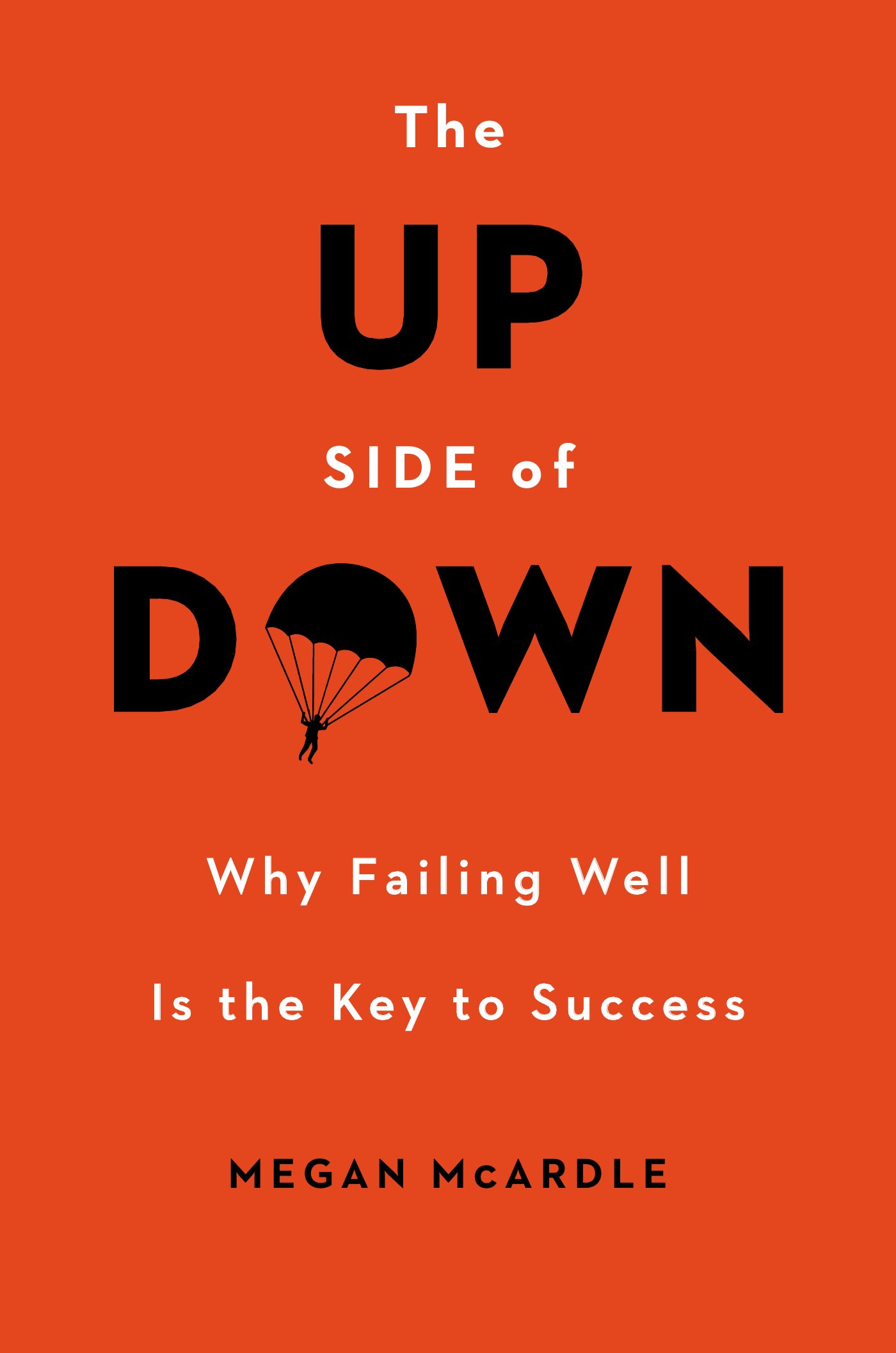 Failure. We’ve all experienced it. Can we benefit from it?? The answer is maybe, depending on the costs of failure.
Failure. We’ve all experienced it. Can we benefit from it?? The answer is maybe, depending on the costs of failure.
If the costs of failure are high, e.g., repaying debts for the rest of life, people will avoid taking risks.? As a result, society will stagnate, because few take risks.
But if the costs of failure are low, people will take more chances, start more businesses, try experiments that might prove something bold.? That is one great thing about America; the penalties for failure are low.? Some have said we are the land of unlimited second chances.? After resigning from the presidency, Richard Nixon became an influential voice on foreign policy.
Megan McArdle uses her own life and many other societal problems to illustrate how a proper use of failure? can benefit individuals and society as a whole.? Failure is how we learn.? As some have said, “The wise learn from the failures of others, normal people learn from their own failures, but the stupid don’t learn.”
I enjoyed this book a great deal, but I want to point out a few of the chapters that particularly struck me.
In Chapter 8, she described the various ways that ideologues described the causes of the financial crisis.? The Left and the Right chose their own monologues to explain the economic failure that occurred.? The truth was far more banal, as average people bought into a housing mania, with financial institutions more than willing to facilitate it, levered as they were.? When the bull market ended, many people found themselves with too much debt relative to the value of their houses.
Chapter 9 was the one from which I learned the most, as it described a probation method used in Hawaii, that I would describe as the judicial equivalent of spanking.? When one on probation violates a term of probation, he gets sent to a rather grim prison for a short period of time.? Like spanking, it is short, and sharp.? Those on probation get tested randomly and regularly.? Most quickly get the idea that they need to change their lives.? The recidivism rate on this program is low.? Small failures get punished.? Resistance to the system means permanent jail.? No failures means freedom.
But what I really appreciated in the book was the willingness of the author to expose her own life failures — jobs, caring for her mother’s health, bad relationships, etc.? She learned from her mistakes, and ended up with a husband who loves her, a good job, and a home in DC, where there is not much debt on the property.? Well done.
My own life has had its share of failures, and they have all taught me something.? The question to you, reader, is what have you learned from your failures?? Memorialize failures, so that you can avoid them and their cousins in the future.? In that sense you can fail well.
There is not a bad chapter in this book.? I recommend it highly, and you will learn a lot.? I learned a lot.
Quibbles
None.
Who would benefit from this book: Anyone could benefit from this great book.? If you want to, you can buy it here: The Up Side of Down: Why Failing Well Is the Key to Success.
Full disclosure: The PR people offered me a book, and I accepted it.? I am glad that I did.
If you enter Amazon through my site, and you buy anything, I get a small commission.? This is my main source of blog revenue.? I prefer this to a ?tip jar? because I want you to get something you want, rather than merely giving me a tip.? Book reviews take time, particularly with the reading, which most book reviewers don?t do in full, and I typically do. (When I don?t, I mention that I scanned the book.? Also, I never use the data that the PR flacks send out.)
Most people buying at Amazon do not enter via a referring website.? Thus Amazon builds an extra 1-3% into the prices to all buyers to compensate for the commissions given to the minority that come through referring sites.? Whether you buy at Amazon directly or enter via my site, your prices don?t change.

?By three methods we may learn wisdom: first, by reflection, which is noblest; second, by imitation, which is easiest; and third, by experience, which is the most bitter.?
Confucious (551-479 BC)
Well said. Confucius was straightforward for the most part.
My son and I SCUBA dive. Lesson 0 – “Learn from the mistakes of others, you will not live long enough to make them all yourself.”
Also well said, thanks, c.a.i.